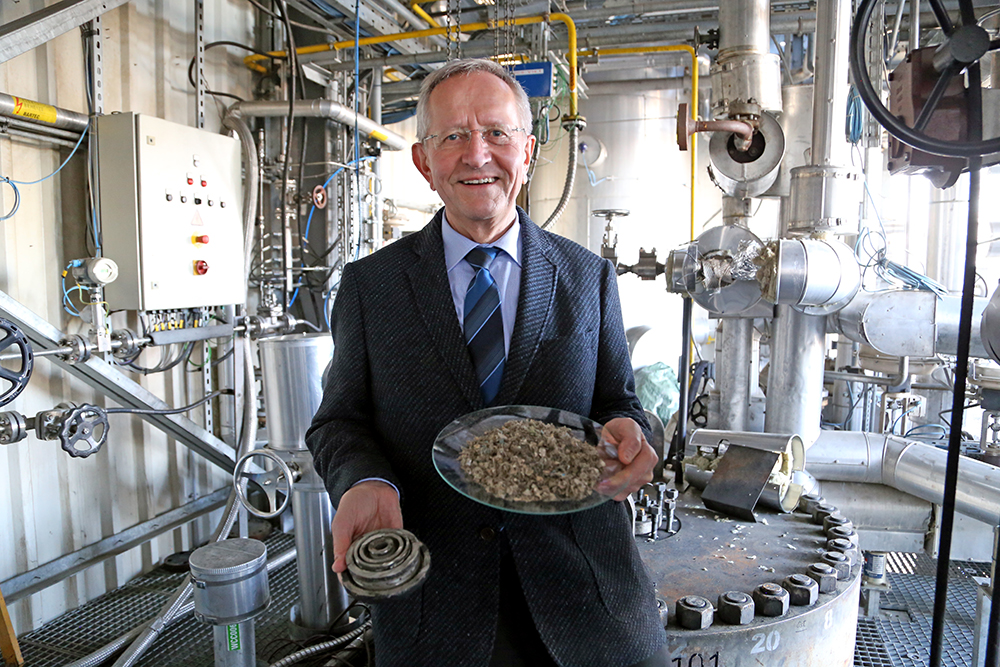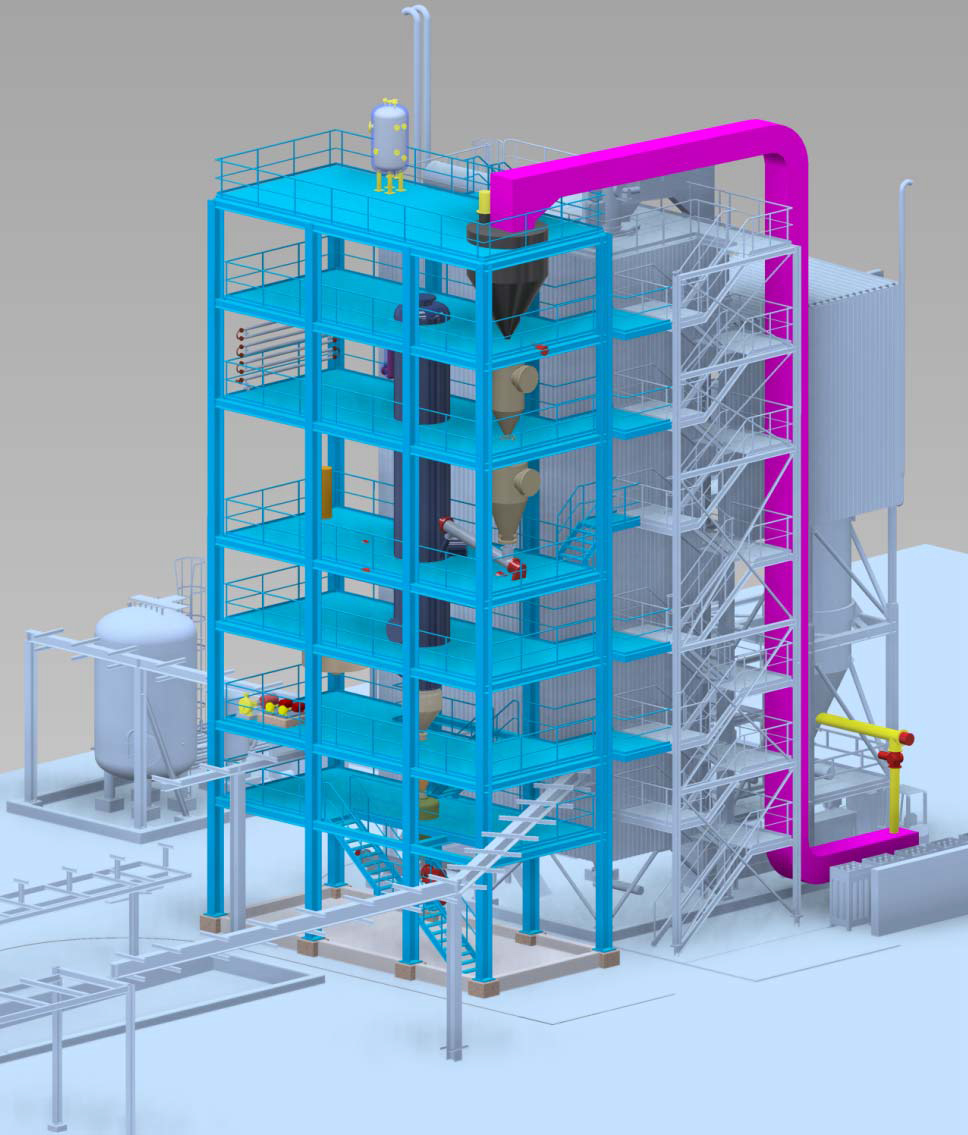Saxony-Anhalt Approves Funding for Fraunhofer’s CARBONTRANS Pilot Plant in Leuna
A sustainable raw material base for the chemical industry, and long-term prospects for lignite in central Germany: with its CARBONTRANS pilot plant, the Fraunhofer Institute for Microstructure of Materials and Systems IMWS in Halle (Saale) is making an important contribution to the low-emission carbon recycling economy. The plant does not burn carbon carriers, but uses them in materials. Up to 30 million euros will be invested in the platform, which will be constructed starting in 2021 after a planning phase. At the suggestion of the Ministry of Economics, Science and Digitization, the cabinet resolved to budget 15 million euros for construction of the innovative CARBONTRANS pilot plant in Leuna (Saale region) through 2024. Another 15 million euros will be contributed from federal funds at the state’s request.


Synthetic gases consisting primarily of hydrogen and carbon monoxide are an important raw material for the chemical industry. Most of these are currently petroleum-based. By contrast, the pilot plant in Leuna will use different carbon carriers, for instance carbon-containing waste such as plastic waste and leftovers from biomass use. These will not be incinerated as before, but gasified together with coal. As a result, the waste will produce a valuable raw material for the chemical industry.
This conversion technique uses a reactor in which the source materials are treated with oxygen and water vapor while applying heat at temperatures of 1000 °C and above. Adding hydrogen, followed by further processing and filtration, produces a synthetic gas that is almost completely converted to synthetic products. Hydrogen and oxygen are currently supplied by the electrolysis platform, which is also located in Leuna. Here the elements are produced through electrolysis, using electricity from renewable energies.
“The pilot plant makes it possible to access a raw material base that is largely independent from petroleum and natural gas, for use in our country’s energy-intensive chemical industry. At the same time, we are able to use the region’s lignite in a way that adds value and is climate-friendly. The plant will play an important role in bringing about a successful structural change in central Germany,” says Prof. Armin Willingmann, the Minister of Economics, Science and Digitization for the state of Saxony-Anhalt.
“Ultimately, what the pilot plant will offer is chemical recycling. Carbon will not be burned, which burdens the environment with CO2; instead, it will be used for other compounds. As a result, we will be laying the groundwork for moving from a linear carbon economy – which ends up burning carbon-containing products and releases CO2 – toward a largely CO2-neutral carbon recycling economy,” says Prof. Bernd Meyer, Director of the Institute for Energy Process Engineering and Chemistry Engineering IEC at TU Bergakademie Freiberg and head of the “Chemical Conversion Processes” group at Fraunhofer IMWS. “That means, for example, that a plastic product made in Leuna can be turned into a starting material for new products at the end of its life cycle,” Meyer adds. He is coordinating the planning and operation of the project within the Fraunhofer Chemical and Biosystems Engineering Center, which is funded by the state of Saxony-Anhalt and includes Merseburg University of Applied Sciences, the Fraunhofer Center for Chemical and Bioengineering Processes CBP in Leuna, and the companies MIBRAG, ROMONTA, InfraLeuna and RWE Power.
The CARBONTRANS pilot plant will be able to process 25,000 tons of carbon-containing materials every year. The resulting synthetic gases can be used right in the Leuna chemical park, for instance to produce methanol. Fermentation can also be used to produce ethanol, acetone, organic acids and other compounds for bioengineering applications.
The project will begin with a planning phase (2019-2021), which will carefully review its technical feasibility and its chances of being approved, and predict the costs. A research reactor will be built in Freiberg that will provide the necessary operating data. The greatest challenge will be producing high-quality synthetic gas from the heterogeneous waste while combining it with dry lignite. The plant technology previously available for coal will need to be fundamentally revised in order to account for the heterogeneity of the input material mixture and to guarantee the highest environmental protection standards, including minimal CO2 emissions. Work will be done in Freiberg to demonstrate that high-quality synthetic gas can be created, as well as efficient and stable continuous operations with minimal CO2 emissions from the gasification reactor. Once the planning phase is completed, the implementation phase will take place through 2024. The reactor will be removed from Freiberg and installed in the existing infrastructure in Leuna; in addition, the technology platform will then be completely integrated into the chemistry park’s material and energy network.
“By operating the pilot plant in Leuna, we want to prove that various regional carbon carriers can be used in an economical, carbon-neutral and sustainable way as part of a carbon recycling economy for the chemical industry, in the context of Chemistry 4.0,” says Prof. Ralf B. Wehrspohn, Head of the Fraunhofer IMWS. If it is successful, the platform will be scaled up to an industrial-scale installation. “Saxony-Anhalt is the ideal location for the pilot plant. We see great demand for this technology in other regions, too, even worldwide,” says Wehrspohn.
